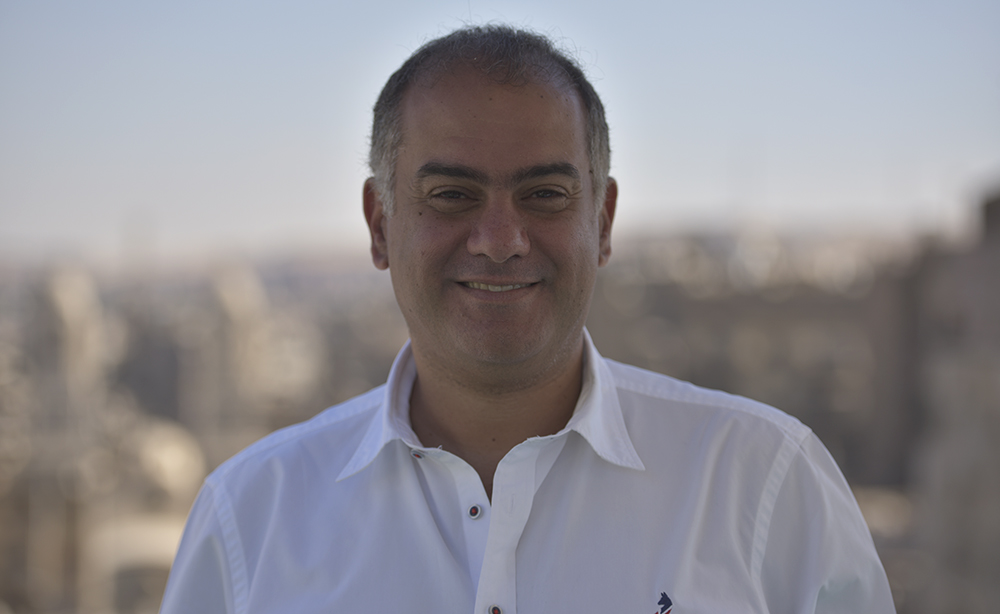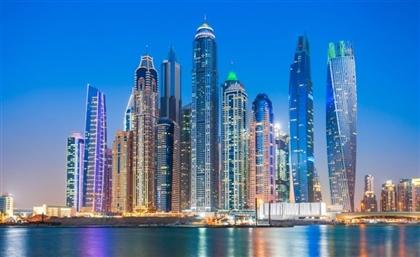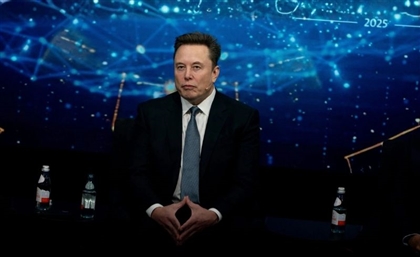Egypt's Largest VC, Algebra Ventures, Explained by its Co-Founder Tarek Assad
In an interview with Valentina Primo, the investor and co-founder of Algebra Ventures narrates how three powerhouses came together to create Egypt's mammoth $50 million fund - and anticipates what's coming for the region's startups.

It was only over a year ago that the three bright minds behind some of Egypt’s most powerful rocketships decided to join forces and create Algebra Ventures, a massive $50 million fund to support the country’s most restless, avid, and promising entrepreneurs. Spearheaded by investment powerhouses Ziad Mokhtar and Tarek Assad, the fund came in as a sequel of Ideavelopers, a VC that was an early supporter of startups like Fawry and Vezeeta.
“In 2015 and 2016 we saw very interesting investment opportunities but there were no other players. We felt that there were large funds across the region but Egypt didn’t access them,” says Assad. “We came together because we saw a big opportunity in entrepreneurship and innovation, as well as large, well established organisations that were interested, like IFC, EBID, Cisco, and the Egyptian American Enterprise Fund,” he says. Enter Karim Hussein and Khaled Ismail, and the power-group kicked off the year strong, becoming a major player in the ecosystem within a short period of time: last year, they injected funds into Eventtus, Fil Khedma, GoodsMart, and El Menus. As 2018 gears up for a restless start, with several investments already making headlines across the region, we sit with Assad to illustrate, outline, and decipher the investment scene in the country.
We’ve seen the rise of a lot of e-commerce and FinTech startups in the past year. Do you feel Egypt has a certain edge across industries?
Some of the entrepreneurs solve very local problems, often very painful problems - if you think Fil Khedma, for example, they solve the pain of getting repairs for houses so you don’t have to wait for five hours but get a guarantee if something goes wrong. These problems are painful, and sometimes very difficult to solve, but that also speaks of the size of the price. If you are in to solve this problem, the reward is significant and if you solve it in Egypt then you can solve in a lot of other countries which are culturally similar - as in a lot of Arab countries - or even other countries which structurally are similar, but it don’t necessarily have the same language or culture.
Despite being the most populated country in the Arab world, and with hundreds of entrepreneurs innovating, the investment rounds in Egypt have significantly lower amounts than in countries like the UAE or Saudi Arabia. Why do you think that happens?
There are a few things: I think the cost base here is lower; it costs less to build a solution, to develop it, to market it, and to hire people; and that’s part of it. The second part is that funding comes in rounds - so you see people raising a $2 million round and a $10, $20 million round - and for some time there has been a dry up in funding in Egypt, so these rounds haven’t kicked in and that momentum was delayed, but you are seeing it happen now with companies like Vezeeta raising over $10 million. We used to get asked a lot to participate in a round for $1 to $2 million now we are increasingly being asked to participate in a $4 to $6 million; I can name about 5 companies today that are raising $5 million dollars rounds. Maybe things in Egypt will happen at their own pace, but Egypt has a certain way of surprising everybody, especially Egyptians. For example, the Fawry exit was one of the largest FinTech exits in the region and one of the largest across the world; so there are interesting stories.
In general, this economy is digitising; if in 2011 there were 3 million Facebook users today there is an excess of 30, ride-sharing is happening with hundreds of thousands per day, the media is getting interested in entrepreneurs, and there is more money going in. Generally, there is a lot of momentum and I think smart entrepreneurs are the ones that will find the difficult valuable problems and try to develop solutions. Those are the types of companies I want to back.

"Egypt is one of the countries where you have both the market and the talent, and that makes it unique within the region."
In a country like Egypt, where the social gap is so huge, there is a huge need for social startups. But social entrepreneurs and investors are dissociated because they don’t seem to speak the same language. Can that gap be bridged?
As investors, we’re here to achieve returns. Our objectives are finance-driven. A lot of what we do has a lot of impact, but by virtue of what they do, by bringing people to the workforce - Fawry, for example, did a fantastic job with financial inclusion - so in the end, it’s an integral part of investing in startups. But I think it’s important to establish a clear goal, and I don’t shy away from saying that our goal is to achieve returns.
And if we look at the impact on the local economy, the GDP and the development of the country?
There is no end to all the studies that show that SMEs are the locomotive of the economy. To me, the other exciting part is the incredible driver that entrepreneurs can be. I spent most of my life in Silicon Valley and it was mind blowing to me to see the guys in the office beside me get a call from Microsoft for millions of dollars and that was the belief that ‘I can be that.’ It’s not easy but it’s doable, if you look at someone a few years ago, he was a founder just like you, he started up with the same footsteps as you and really made it, so you can look at them and say, ‘I can be like that; it is not an insanely difficult to think that I can do this.’
There is a very virtuous cycle that gets the ball rolling and we are starting to see that, Egypt is not Silicon Valley, but your starting to see a change; we had experience where people in Fawry began investing and supporting other companies, or Khaled Ismail exiting and making other investments. The one one thing I would like to see in this ecosystem is a lot more of that cycle, because at the end of the day that’s what drives people to leave their corporate job and start a company. That’s the most powerful thing, which impacts society as a whole. There are a lot of inspiring stories that can counter some of the negativity that we hear of a lot. It’s important to get up in the morning and want to go to work, innovate, change things and challenge the status of things.
Speaking of negativity, what do you tell foreign investors who say ‘I wouldn’t invest in Egypt because it’s too risky.’
Well, that’s one less competitor for us. We see a very clear opportunity and we’re excited about it. With every investment opportunity there are risks you are willing to take, and risks you are not willing to take.
Look at Fawry, which grew in a time with two revolutions and three constitutions, three presidents, and it couldn’t get more turbulent, and then sold it for $100 million. During that time all the corruptions and Facebook multiplied its user base by 10. Are there risks? Of course there are. Turbulences? Yes, there are. Is it killing the innovation? No. All you have to do is look at the numbers; look at where things were and where they are now. Different investors assess different risks differently.
There have been massive funds recently emerging from Saudi Arabia and UAE. How they are changing investing in tech startups how do you think this will impact Egypt?
It will have a very positive impact; if you look at the region, there are certain markets that have very strong talent but a small market; while there’s other countries that have a very large market but the talent isn’t as developed. Egypt is one of the countries where you have both the market and the talent, and that makes it unique within the region. So these funds that have a regional footprint can also invest in Egyptian companies, and that will attract more talent, more capital; particularly because most of them have strong experience in the region and in the field. Sometimes when you have a lot of money thrown into something you run into overfunding and overvaluing but we are yet to see what happens; but the Egyptian startup scene will get a lot of support.
You recently got heavily involved in the RiseUp Summit and their HIPO programme. How did that come about?
It was very easy; when we sat with the RiseUp team and they explained the HIPPO programme, we thought ‘yes, we would love to be apart of that.’ It was exciting for us is as investors because we are keen to showcase the evolution of this ecosystem, and to us the biggest way to show this is quantitatively, so HIPPO’S are companies that have shown strong financial returns, so you are showing that the startup scene is no longer a developmental thing but real money and real investments. It’s the next level of the evolution of the ecosystem.
Photography by @MO4Network's #MO4Productions.
Photographer: Ahmed Najeeb.
- Previous Article Bassita: Click Funding for a Better Egypt
- Next Article 8 Wonder Women Entrepreneurs Crossing Milestones in Jordan




















